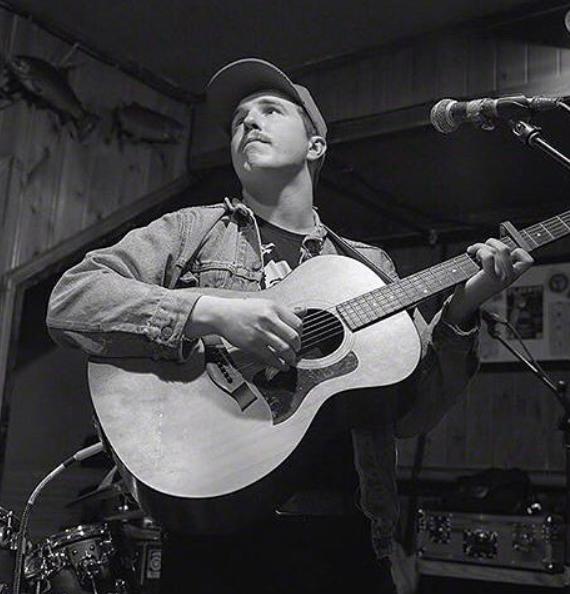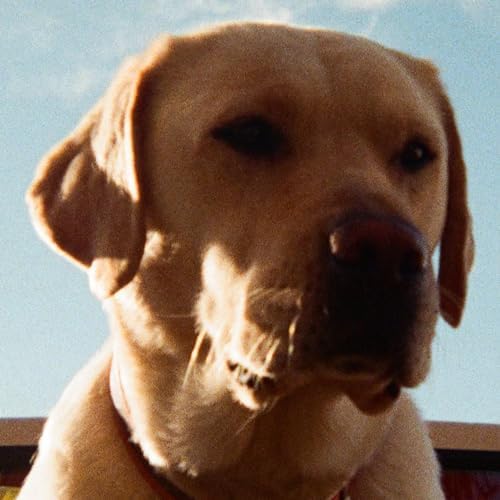
Hunter Hicks is a songwriter steeped in the tradition of American music and all the branches and offshoots that one can associate with this loose, “one-size-fits -all” term. He wears his influences on his sleeve and has diligently studied the music and traditions of the 20th century: Robert Johnson, Hank Williams, Lightning Hopkins, Skip James, Ray Charles, Bob Dylan, Gram Parsons, etc… the list goes on forever. His bio sums it up beautifully:
Hicks performs original songs meant to blend into the great American Songbook. An ode to the tradition of songwriting, Hicks sees American folk music as a tradition that can survive the modern world.
Hicks grew up in Michigan but spent his teenage years in Cody, Wyoming. He then moved to Laramie where he became a musician and proper songwriter. He put in the work that it takes, woodshedding and learning the songs and fundamentals of the folk, blues, and country-western music canon.
Hicks put out his first EP in 2019; Dead Birds. Again, in 2021 he released a “Self-Titled” full length album. You might hear traces of Deer Tick, Felice Brothers, or Uncle Tupelo as much as you hear the ghosts of Guy Clark, Townes Van Zandt… and Dylan (not dead). There is a cascading of influences, all intermingling and in conversation with one another, that emerges as something new and all his own.
Hicks is blessed with a voice that is distinguished and all his own. The man has done his homework and has honed his craft and chops. It shows on his new album, Maple Syrup Jar, released earlier this year. The album is a continuation of Hicks’ exploration of this vast and wide canon and, from it, a new patchwork of influences emerge.

The songs were written mainly in, and likely for, the city of New Orleans, where he has made his home. Building on to his songwriting chops, he adds new dimensions of rhythm and blues to his repertoire. On a recent episode of NOLA County, he discusses how he “fell in love with rhythm” and that this album was “for the dancers” of New Orleans. It is felt throughout the album. His band is hot and they managed to capture some serious magic on these recordings.
The album was recorded at Big Tone Records in the city of New Orleans. The band and players consisted of Andrew McDaniel on standup bass and backing vocals, Lyle Werner on fiddle and electric guitar, Trent Pruitt on Drums, Kevin Hegyi on lead guitar, Adam Bellard on lap-steel, and Alex Pianovich on piano.
The first track of the album begins with a character we might identify as an unreliable narrator; or, maybe more correctly, one that might be considered wildly naive. He is addressing his mother:
Oh Mother, my mother
I think I beat the blues
You wouldn't believe me
when i tell you what they're paying me to do!
The character is ecstatic that he has found a profession that fits him. He seems disillusioned and maybe even offended that he would be made to stoop so low as to count other people's money, fold clothes, cut grass, pump gas. He has found something preferable:
All I gotta do is just make children laugh! All I gotta do is learn a juggling act! Ain't gotta pick up nothing heavy I aint doing nothing hard Just wearing a big red nose around and driving a little car Themes like the obligation to work for a living, growing up but not wanting to adhere to the straight world, wanting to eat your cake and also keep it are all universal themes that make this album feel classic and timeless. The creation of these characters throughout, all quintessentially a fictitious Hicks himself (?) give us a rollicking farce and a quixotic yarn. This same put-on naivety shows an artist that is possibly more self-aware than most. It sure makes for a fun listening experience if you follow the plot. "Juggling Act" is a strong opener and the song is a perfect representation of what Hicks continues to do throughout the record. The second track, "What Am I to Do" picks up the pace. It's a "hot number", undeniably danceable and one to really get the people on the floor spinning and jumping. This one is contagious, with an extremely catchy melody and a great swing. And yet again, if you are following along with the lyrics, Hicks is able to really seize a profound truth on this track. He is exploring the ideas of work and play, his hopes and dreams; how these things can be difficult, perhaps even impossible to realize simultaneously. "Timbuktu" is a slower number, and, safe to say, an homage to Hank Williams Sr.. The slide guitar and the back beat along with Hicks' slow delivery and inflection make it one of my favorite tracks on the album. This track, and really the whole album, feel like a love letter to the artists and music that have shaped Hicks. "Baby Boy" is another slow number that shows the songwriter's clever craft and gift of spinning some yarn. The piano and fiddle take turns in the spotlight, and the point-of-view shifts to a paternal figure who feels he may not be able to relate to his own son. With "Bumblebee", we get more of these existential themes. This one shows more self awareness and follows a reckless character who seems to be on a bender. The breakdown has Hicks almost slurring his words. I can't help but think of it being a cautionary tale for a type of person who would get carried away in a city like New Orleans, "floppin from flower to flower like a bumblebee". A nihilism is explored on this track as well as the next, "Worried (About Nothing At All). Again, these are big themes that are right under the surface of what is, on first listen, a very fun and danceable record. "Simulated Diamonds" is the closing track and one that I keep returning to. This is the only song on the record that is not written by Hicks. It was written by Eddie Noack. Just a damn good song about something being dressed up and pretending to be something it is not. Another timeless track with a lesson we can all relate to. And the title track, "Maple Syrup Jar", is a burner with a nice bluesy stomp that might give the dancers a break from two-stepping and a chance to dance by themselves for a few minutes. The whole album is memorable and I believe will hold up over time. Hicks has done something special with this record. This may be the first batch where he is able to inject a sense of humor into his songs. He delivers some of these songs sincerely, but other times with a tongue planted firmly in his cheek. He may have learned this from Dylan, whom he has seemed to emulate in the past. And Dylan might have learned it from Johnny Cash. But this does not feel like emulation as much as it feels like a new level of authenticity while giving credit where credit is due. He emerges on this new record like a more authentic version of himself; as a "new born baby" that is ready to give the dancers of New Orleans and beyond what they want. Keep your eyes peeled for Hunter Hicks and enjoy responsibly.
Evan O'Neal is a writer, editor, columnist, and co-founder of High Horse Magazine.
Leave a comment